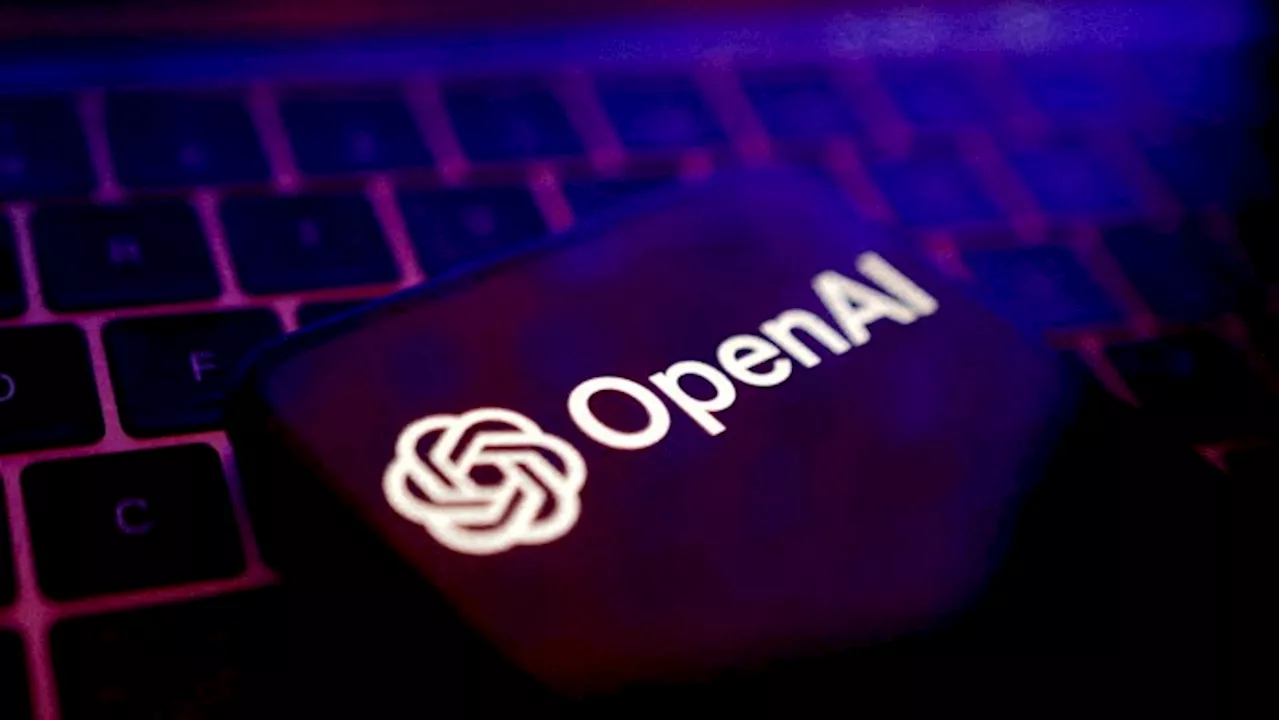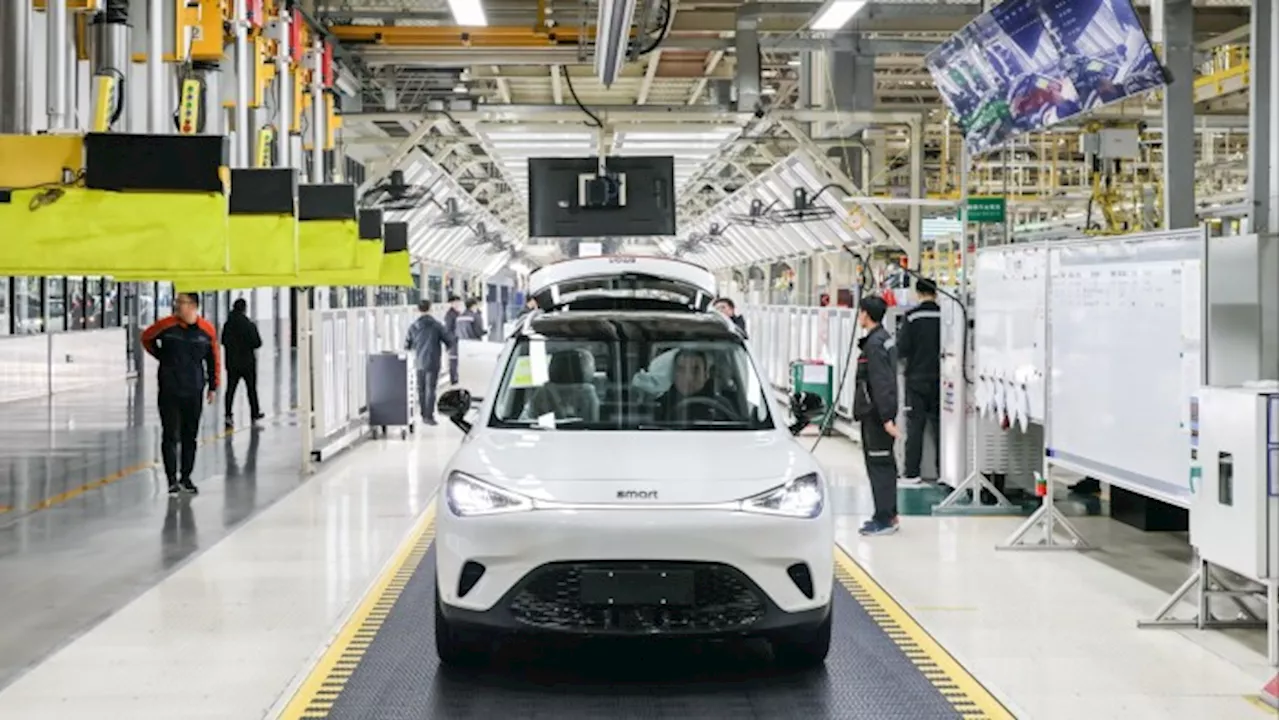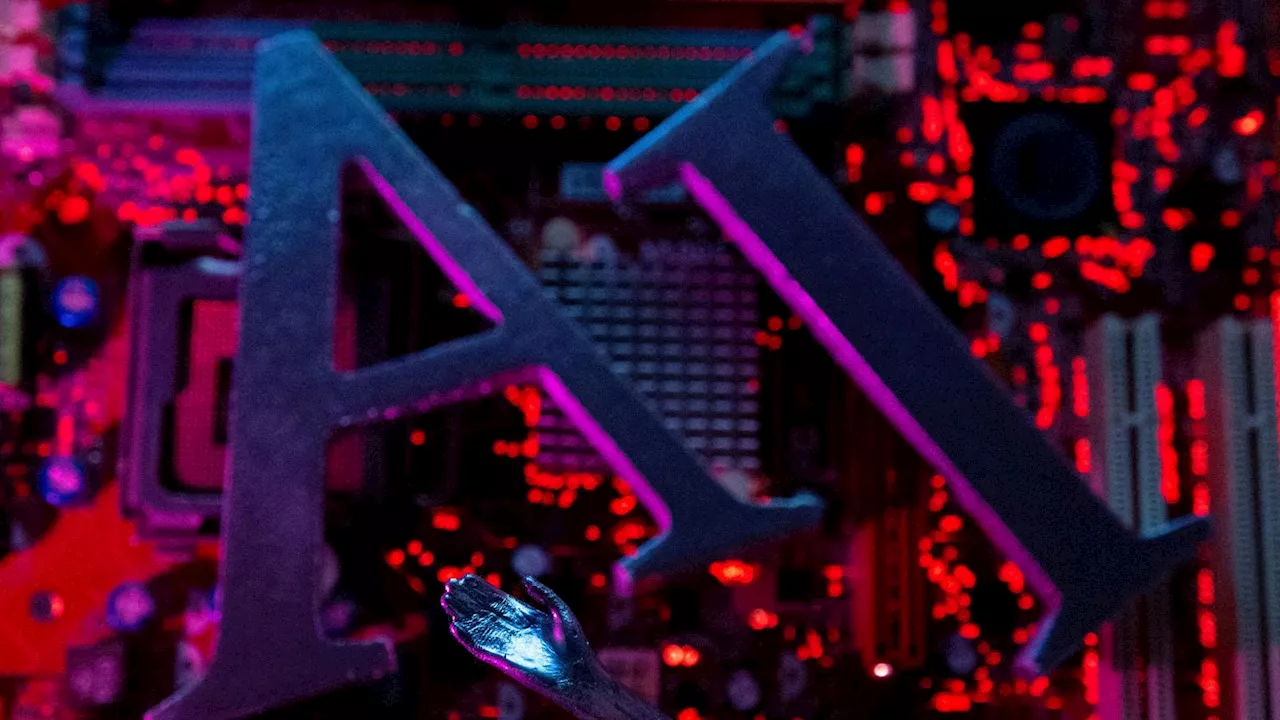The development of powerful AI systems, like China's DeepSeek, has triggered an international arms race for supremacy. Experts warn that this competition, driven by economic and military ambitions, could lead to unforeseen dangers if not carefully regulated. While some AI pioneers express concern about the potential risks of unchecked AI development, others believe that the rapid pace of innovation will prevent any single entity from gaining an unassailable advantage.
An arms race for artificial intelligence (AI) supremacy, sparked by recent anxieties over the Chinese chatbot DeepSeek, poses a significant risk of exacerbating the existential dangers of superintelligence, according to one of the pioneers of AI.
Canadian machine learning expert Yoshua Bengio, author of the inaugural International AI Safety Report to be presented at an international AI summit in Paris next week, cautions that unchecked investment in computational power for AI without adequate oversight is highly dangerous. \'The focus is on who will win the race, rather than on ensuring we don't build something that backfires,' states Mr. Bengio. He warns that military and economic competitions 'inevitably lead to shortcuts on ethics, responsibility, and safety.' Bengio, who has made significant contributions to neural networks and machine learning, the fundamental software architecture underpinning modern AI models, is in London alongside other AI pioneers to receive the Queen Elizabeth Prize, the UK's most prestigious engineering award recognizing the potential of AI. While he is enthusiastic about its societal benefits, the shift away from AI regulation during Donald Trump's presidency and the intense competition among major technology companies to develop more powerful AI models are deeply concerning. \'We are creating systems that are increasingly powerful; surpassing human capabilities in certain areas,' he says. 'As these systems become more powerful, they also become incredibly valuable economically. 'The magnitude of, 'wow, this is going to make me a lot of money' is driving many people. And, of course, when you're selling products, you don't want to talk about the risks.' However, not all AI pioneers share this level of concern. Yann LeCun, Meta's Chief AI Scientist, also in London to share in the QE prize, offers a different perspective. 'We've been misled into believing that large language models are intelligent, but they aren't,' he states. 'We don't have machines that are nearly as smart as a house cat in terms of understanding the physical world.' \Within three to five years, LeCun predicts, AI will exhibit certain aspects of human-level intelligence. Robots, for example, capable of performing tasks they haven't been explicitly programmed or trained for. Nevertheless, he argues that rather than jeopardizing global safety, the DeepSeek episode – where a Chinese company developed an AI to rival the best of America's tech giants with a tenth of the computing power – demonstrates that no single entity will maintain dominance for long. 'If the US decides to restrict AI development for geopolitical or commercial reasons, innovation will emerge elsewhere in the world. DeepSeek proved that,' he says.
ARTIFICIAL INTELLIGENCE AI ARMS RACE DEEPSEEK YANN LECUN YOSHUA BENGIO AI REGULATION SUPERINTELLIGENCE ETHICS
United Kingdom Latest News, United Kingdom Headlines
Similar News:You can also read news stories similar to this one that we have collected from other news sources.
 The New Arms Race: AI's $500 Billion Bid for SupremacyOpenAI's ambitious Stargate project, backed by the US government, aims to build a world-changing AI infrastructure with a staggering $500 billion budget over four years. This initiative highlights the new global race for supremacy in the field of artificial intelligence.
The New Arms Race: AI's $500 Billion Bid for SupremacyOpenAI's ambitious Stargate project, backed by the US government, aims to build a world-changing AI infrastructure with a staggering $500 billion budget over four years. This initiative highlights the new global race for supremacy in the field of artificial intelligence.
Read more »
 China is winning the race for green supremacyThe west needs to co-operate, cautiously, with Beijing in the renewable energy trade
China is winning the race for green supremacyThe west needs to co-operate, cautiously, with Beijing in the renewable energy trade
Read more »
 Is the graphical arms race in gaming coming to an end?The latest console generation boasts impressive graphics, but the year-on-year improvements are becoming increasingly incremental. With diminishing returns on graphical advancements, is it time to move beyond the pursuit of photorealism in gaming?
Is the graphical arms race in gaming coming to an end?The latest console generation boasts impressive graphics, but the year-on-year improvements are becoming increasingly incremental. With diminishing returns on graphical advancements, is it time to move beyond the pursuit of photorealism in gaming?
Read more »
 Is The Graphical Arms Race in Video Games Finally Over?While video games today boast stunning visuals, with advancements appearing incremental, some argue that the graphical arms race in gaming may be nearing its end. The article explores the diminishing returns of graphical improvements and the shift in focus towards other aspects of gaming, such as gameplay and storytelling.
Is The Graphical Arms Race in Video Games Finally Over?While video games today boast stunning visuals, with advancements appearing incremental, some argue that the graphical arms race in gaming may be nearing its end. The article explores the diminishing returns of graphical improvements and the shift in focus towards other aspects of gaming, such as gameplay and storytelling.
Read more »
 The AI arms race costs moneyAnd rising corporate bankruptcies
The AI arms race costs moneyAnd rising corporate bankruptcies
Read more »
 My evil ex set me on fire & threw our girls out into the snow – my babies will never hear my voice again...Inside terrifying acid attack ‘arms race’ as cowardly thugs spark fears of fresh wave of misery
My evil ex set me on fire & threw our girls out into the snow – my babies will never hear my voice again...Inside terrifying acid attack ‘arms race’ as cowardly thugs spark fears of fresh wave of misery
Read more »
